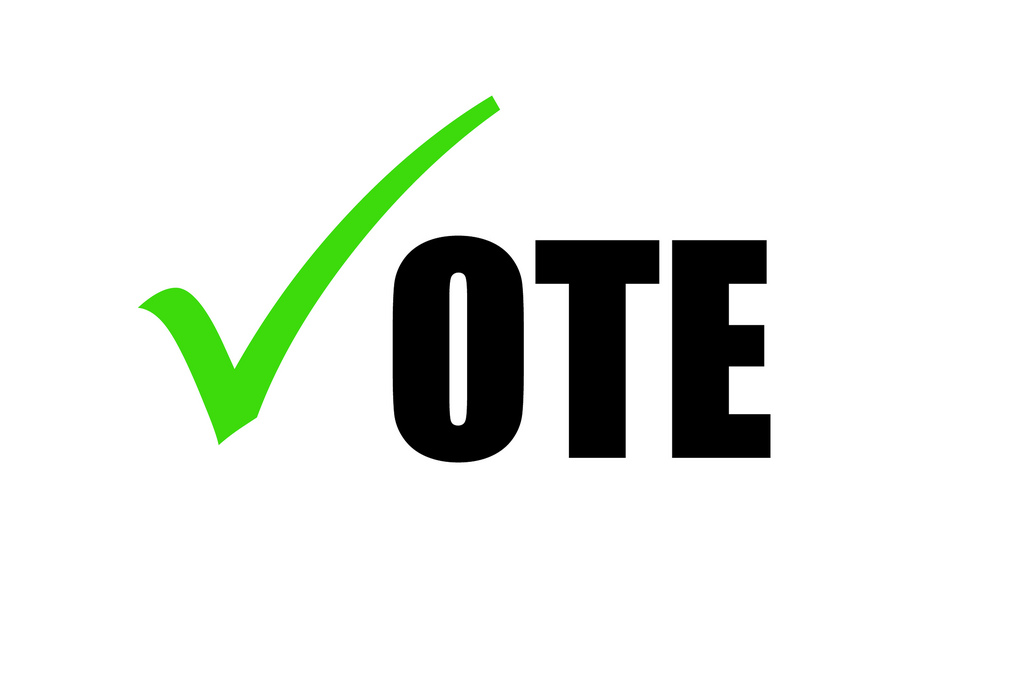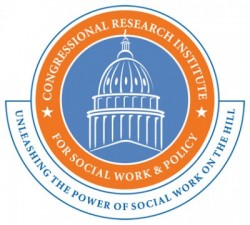There are a growing number of social workers who believe our profession can play a significant role in restoring confidence in our nation’s political processes by encouraging more people to register and vote. In the August 2015 Gallup Poll, 72 percent of Americans say they are dissatisfied with the direction of the country. They want change. Many lower and middle-income families have been feeling squeezed for years. So how does change occur? Dēmos policy analyst Sean McElwee says more in the low- and middle-income class need to vote. In his report, Why Voting Matters, McElwee documents how lower-income voters’ failure to vote has resulted in policies that favor the well-to-do. He reported 26 million eligible voters of color and 47 million eligible voters earning less than $50,000 annually did not vote in 2012. In 2014, the numbers were 44 million and 66 million respectively.
Many social workers are realizing the critical need for more of us to be involved in political processes. Nancy A. Humphreys, past president of the National Association of Social Workers (NASW) and former dean of the University of Connecticut School of Social Work, has been preaching this message for decades. The Nancy A. Humphreys Institute for Political Social Work (NAHIPSW) at the University of Connecticut’s School of Social Work will be celebrating its 20th anniversary next month and still going strong under the leadership of new director Tanya Rhodes Smith. Although Dr. Humphreys retired recently, she has not abandoned her efforts to educate and organize social workers, social work students and faculty around the need to be more politically active. Her message is taking root and signs of increased activity are sprouting around the nation.
 CRISP is joining forces with Influencing Social Policy’s outgoing chair, Kathy Byers, to launch a social work-led voter empowerment project designed to mobilize social workers to register, educate, and get voters to the polls so their voices will be included in deciding the direction of the country. This nonpartisan campaign seeks to provide social workers with evidence-based information and tools necessary to effectively identify and engage nonvoters. Drawing on proven resources from successful voter registration and education projects such as the League of Women’s Voters, Emily’s List, Nonprofit Vote and Rock The Vote, this social work voter empowerment campaign will create and disseminate materials and toolkits designed specifically for social workers.
CRISP is joining forces with Influencing Social Policy’s outgoing chair, Kathy Byers, to launch a social work-led voter empowerment project designed to mobilize social workers to register, educate, and get voters to the polls so their voices will be included in deciding the direction of the country. This nonpartisan campaign seeks to provide social workers with evidence-based information and tools necessary to effectively identify and engage nonvoters. Drawing on proven resources from successful voter registration and education projects such as the League of Women’s Voters, Emily’s List, Nonprofit Vote and Rock The Vote, this social work voter empowerment campaign will create and disseminate materials and toolkits designed specifically for social workers.
In addition, CRISP will soon formally announce the formation of a Student Advisory Council (SAC) that will focus on engaging millennial social workers in BSW, MSW, and PhD programs as well as recent graduates. CRISPSAC will focus on social entrepreneurship and using technology to advocate and influence policy. Led by Shauntia White, a second-year student at the School of Social Services at the National Catholic University of America, CRISPSAC, under the banner #YSocialWork, is recruiting representatives from schools across the country to be ambassadors and spread the message at their schools. CRISPSAC communications coordinator Justin Vest, a recent grad from the University of Alabama School of Social Work, is spearheading an awareness campaign on Tuesday that will include a Twitter chat using the hashtags #CelebrateNVRD and #SWVote.
Tuesday is National Voter Registration Day, a day to remind Americans to take advantage of our precious right to vote—a right that has never been fully accessible to all citizens of the United States. Women fought for decades to win the right to vote in 1919. The Voting Rights Act of 1965 struck down many of the barriers that denied African Americans access to the polls. The National Voters Registration Act of 1993 sought to ease access to voting. Yet, less than 50 years after the VRA of 1965, key provisions of the legislation were eviscerated by the 2013 Supreme Court decision in Shelby County v. Holder. Roadblocks such as unduly restrictive voter identification requirements, polling places with inadequate resources to meet demand, and laws that create barriers to student participation all work to limit participation in our democratic process. More alarming are the vast numbers of Americans who choose not to exercise their right to vote. According to the U.S. Census, only 92.1 million (41.9%) of 220 million voting-age Americans voted in the 2014 elections, meaning 127 million people did not vote. Nearly 78 million voting age Americans were not registered. Voter participation rates are significantly higher in presidential elections—almost 62 percent of eligible voters went to the polls in 2012.
A defining event in the profession’s expanding political focus was the founding of the Congressional Social Work Caucus (CSWC) by former Congressman Edolphus “Ed” Towns with assistance from NASW. It created a platform on the Hill for social workers and encouraged us to be more fully engaged with the federal government. Now under the leadership of Congresswoman Barbara Lee (CA-13), the CSWC continues to work in conjunction with social work schools and organizations. Plans are underway for a second Social Work Day on the Hill in March 2016. Empowering American voters is a critical function for which social workers are trained and equipped to be game changers.
Written By Charles E. Lewis Jr., Ph.D
Social Workers to Launch Voter Empowerment Campaign was originally published @ Congressional Research Institute for Social Work and Policy » Charles Lewis and has been syndicated with permission.
Photo by kristin_a (Meringue Bake Shop) 
Sources:
Our authors want to hear from you! Click to leave a comment
Related Posts







